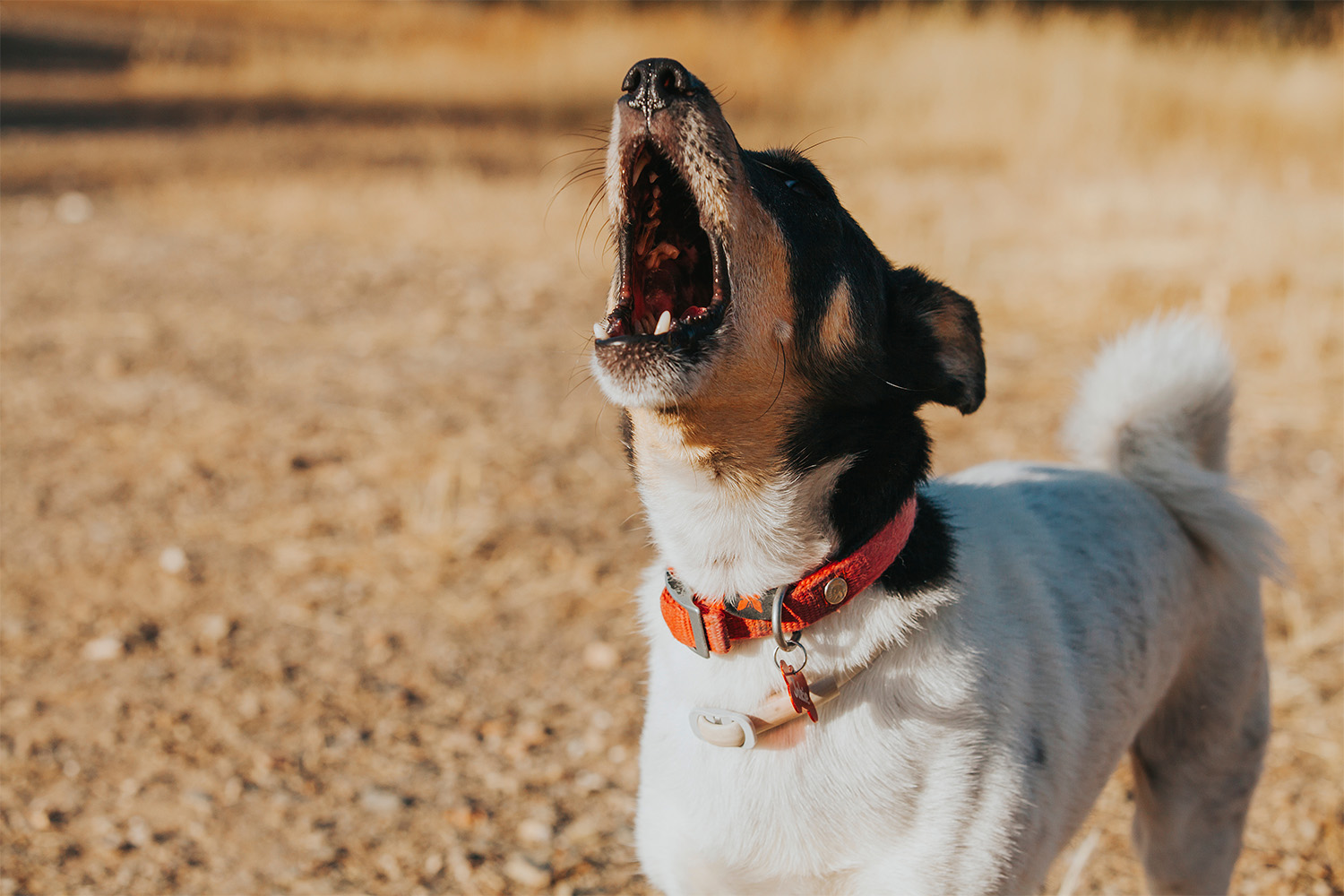Your dog could be really big on communication and likes you to know what they think throughout the day! If this is the case, you are quite familiar with your dog’s whine and might even be able to distinguish your dog’s specific whines from each other.
This aspect of your dog’s behavior is a common form of communication. It’s true that a dog’s whine can mean a multitude of things, but they may have different inflections or behaviors associated with specific whines that they use to help get their point across.
Not all whining is negative or something to be concerned about. Your dog might excitedly whine whenever they see their best friend on their daily walk, or they might whine because they are feeling discomfort. Monitoring their other behaviors can help you to determine what your dog’s whine might be about.
If you’re thinking, “Why is my dog whining?” and want to know when to take it seriously, keep reading:
Why Do Dogs Whine?
Puppies and adult dogs whine for a variety of common reasons. Because they can’t communicate with their humans in a normal way, our dogs rely on their body language and their voice to communicate their needs.
While moderate or excessive whining isn’t really a learned behavior, it can be a learned reaction. For many dogs, they learn that when they whine, they are given attention — this is a phenomenon sometimes referred to as “appeasement whining.”
If our pups are bored and in need of some mental stimulation, they might use vocalization. Vocalizing can be a tactic to get their human to pay attention to them and provide them with what they need, whether that be a favorite toy, a potty break, or some extra playtime with you, their pet parent.
Of course, dogs don’t always whine because they want something. If a dog is excited enough, whining might be the way that an excited or anxious dog expresses the anticipation of what’s about to come next!
1. Seeking Attention
According to animal behaviorists, one of the main reasons your dog is whining is because they want your attention. If you have a particularly needy dog, you know what we are talking about! Maybe you are typing away at your computer at home for too long, and your dog is staring at you, whining or whimpering because they want pets and cuddles.
You can tell when a dog is seeking your attention because of other behaviors like swatting with their paws and nuzzling into you. If you aren’t giving them the attention that they want, these behaviors will only progress until they give up and sulk in their beds (probably still whining).
2. Appeasement Behavior
When a dog is meeting a new dog or person, they might whine as a submissive response. This will usually be accompanied by other submissive behaviors, like ears back, tail tucked, and head down.
It might be mixed with excitement or anxiety, depending on the situation that you are in. If your dog is meeting up with their best friend (human or animal), it might be as a result of their excitement. If your dog is in a new setting, it might be influenced more by anxiety.
3. Anxiety
Dogs can become anxious for a variety of reasons. No two dogs are exactly the same in this regard (or in any category — it’s one of the reasons we love them so much!)
If you are wondering if your dog is whining because of stress, you might want to take note of other anxious behaviors like lip licking, averting their gaze, and yawning.
If your dog is anxious or suffers from separation anxiety, the whining might be involuntary and not something they can stop easily. If your dog is extremely stressed out, they might not be able to control their whining unless the trigger is eliminated.
4. Greeting Behavior
If your dog is a people and dog lover, they might whine when greeting both new and old friends. This is a sign that your dog is extremely excited and truly can’t contain themselves. They will likely be wagging their tail, mouth open, and “smiling.” Some will even jump around or bow as a way to show their friendliness and invite the other dog or human to play!
This behavior is also connected to seeking attention, so while it’s adorable and good to see a happy pup, this might not be the behavior you are looking for.
5. Asking for Something
Whining might also be the way that your dog communicates they are in need or want something. The clock strikes six o’clock, and your dog starts whining for you to feed them. They might need to use the potty and combine whining and running to the back door to let you know.
There could be a toy that has gotten stuck underneath the couch, and your pet needs you to get it for them so to let you know they whine while staring between the sofa and you. Of course, your pet won’t always be able to tell you their exact needs, but as you learn more about your pet’s personality and unique behaviors, it becomes easier to guess what they want!
6. Expressing Pain or Discomfort
The worst-case scenario to explain why your pet is whining is because they are in some sort of pain. If your dog is whining, but it’s not accompanied by any of the above situations, it might be related to pain or an injury.
If you are able to eliminate the reasons above, you might want to consider taking your dog to their veterinarian to do further testing to find the cause.
When To Worry About Dogs Whining
If you think that there could be something wrong with your dog, whether it be anxiety or pain, you should take your pet to their veterinarian. Your pet could be under a lot of stress or discomfort that only you can help to fix. Your dog cannot communicate what their issue is exactly, but their whines are the best way for them to indicate a problem.
Additionally, if the whining is beginning to become disruptive to your daily life, you may want to correct the whining behavior. There are plenty of ways to do this, and it can help your dog’s overall relationship with you and others.
How To Stop Dogs From Whining
Whining can sometimes be annoying, especially when it’s persistent and uncontrollable. Many dogs whine as a reaction when they can’t contain their excitement or needs. While it can be cute, it is not always a desirable behavior.
Depending on what your dog is whining about, there are different ways for you to correct the behavior and teach your dog what the right reaction should be.
- If your dog whines when you don’t give them attention, make it a point to only give attention, pets, or treats when the dog is not whining, jumping, or pawing at you. In other words, don’t give your pet attention if they are making a fuss. You can dramatically turn away from them, fold your arms, or turn your head whenever you make eye contact.
- In turn, make sure you are giving your dog plenty of attention, enrichment, exercise, and treats when they are not whining. This can help reinforce good behavior and teach them that whining for attention doesn’t work.
- With anxiety, it’s a bit harder to train the whining out of your dog. To relieve them of their stress, you need to eliminate the stressor. These stressors can include separation, new people and pets, changes in the home, and differences in routine, etc. If the behavior is severe, your dog may need the help of medication prescribed by their veterinarian.
Dog Whining? It’s Time To Call.
You might be wondering what a specific behavior means when paired with whining, and for every dog, the reasoning for the whine might be different. When you sign up with AskVet, you gain access to Certified Pet Lifestyle Coach™, who can help work on these behaviors with you.
The best way to help your dog correct their whining behavior is to train them out of it and work on it from a young age. It’s easier to train a dog the right way to act the first time around than to correct bad behavior later on (though it is possible!).
Whether you have a new puppy or an older dog, your dog uses whining as a form of communication. Knowing what your dog needs can lessen your dog’s anxiety and have them feel confident and happy with you as their person. Schedule a call with an animal expert today and learn more about your pet and how you can better their life every day!
Sources:
Canine Separation Anxiety: Strategies For Treatment And Management | NCBI





